By Shari McMinn
But the fruit of the Spirit is love, joy, peace, longsuffering, kindness, goodness, faithfulness, gentleness, self-control (Galatians 5:22-23a NKJV).
In my previous CHEC Unique Learners blog post, “Up From Their Baseline,” I discussed learning challenges that parents can begin to evaluate based on observations while homeschooling their special/unique students. This month, I want to take that to the next level and discuss alternative assessments for our children. Since our kids do not fit into the standardized test mold, it is probably best not to evaluate them that way.
In Colorado, if you homeschool under a Notice of Intent (NOI), students in the odd grades (3rd, 5th, 7th, 9th, and 11th) are to be assessed (I suggest during the spring or summer) of those grade levels, for parents to remain accountable for their children’s educational progress. Results are then filed with the district you have chosen to do so with. If, instead of an NOI, you are enrolled with a private school as a homeschool ‘umbrella,’ their requirements may be the same or different. For example, if you are a member of the CHEC Independent School — as my family is — then those assessments are due in the odd calendar years, e.g.: 2021.
Are you anxious about testing or evaluating your unique learner student? Relax! It is not as complicated as you think. It may be helpful to first read through this: Colorado homeschooling assessment options.
Colorado’s legal options for biannual homeschool assessments include three basic categories:
- Nationally Standardized Achievement tests — such as the IOWA Test of Basic Skills
- Professional Evaluation — performed by a qualified person you know or can hire
- CHEC Independent School Parent Evaluation (you can view a sample) — only for families enrolled in the CHEC IS
For 20 years, my late husband was the qualified person who wrote a professional evaluation (he chose to do so annually) for each of our homeschooled students (both our unique and typical learners). For the past eight years since his death, I have completed the CHEC IS Parent Evaluation biannually for my five unique learners until their graduation from home high school.
Although some unique learners may do well on a standardized test (I suggest you administer a practice one first to find out, since they have to have a composite of at least 13% to be considered “passing”), my experience has been that an evaluation is a much more effective and successful assessment to show progress, strengths to build on, and weaknesses to continue to improve on.
If you want to hire a professional evaluator, go to the #2 link above. If you want to complete a parent evaluation, make sure you are enrolled with the CHEC IS, then order the form, one for each student in grades 3-11 during this odd calendar year.
Whether a professional or parent evaluation is completed on your unique learner, make sure the student is assessed holistically — academically, emotionally, physically, relationally, socially, and spiritually. Include their strengths, weaknesses, passions, goals, dreams, and character qualities based on the fruit of the Spirit (Galatians 5:22-23).
Although the Colorado Revised Statutes (C.R.S.) require these assessments, they are also helpful for our homeschool success. Once we know the results, we can make adjustments to our educational plan for next year. If we don’t know where we are on our homeschooling journey based on our student’s performance this past year, we won’t have much direction for the coming years. The more we know about our teaching and our student’s learning, the more excellent education we can offer them. More importantly, we know what wisdom and guidance to ask God for year-to-year and day-to-day.
Keep in mind that the ‘every other year’ or ‘odd years’ assessments applies to every student, whether they are held back one or more years due to their special circumstances. So, if your child is the age of a typical 3rd grader, but only doing 1st grade work, your student should be assessed or evaluated. We want to follow the spirit of the law, not just the letter of the law. It is the right thing for you to do as their teacher, and for your student’s own success, even if it plateaus at some point because of their uniqueness. It is also a way to protect a homeschooling family from an educational neglect charge because every other year assessments, even if the progress is very small, shows progress and proves that you are doing all you can to help your struggling learner.
Thanks for reading this month’s Unique Learners blog post. I hope you will consider registering for the Rocky Mountain Homeschool Conference, June 17-19, 2021. I will be teaching several sessions for unique learners that I hope will encourage and inform you and other attendees.


Leave a Reply